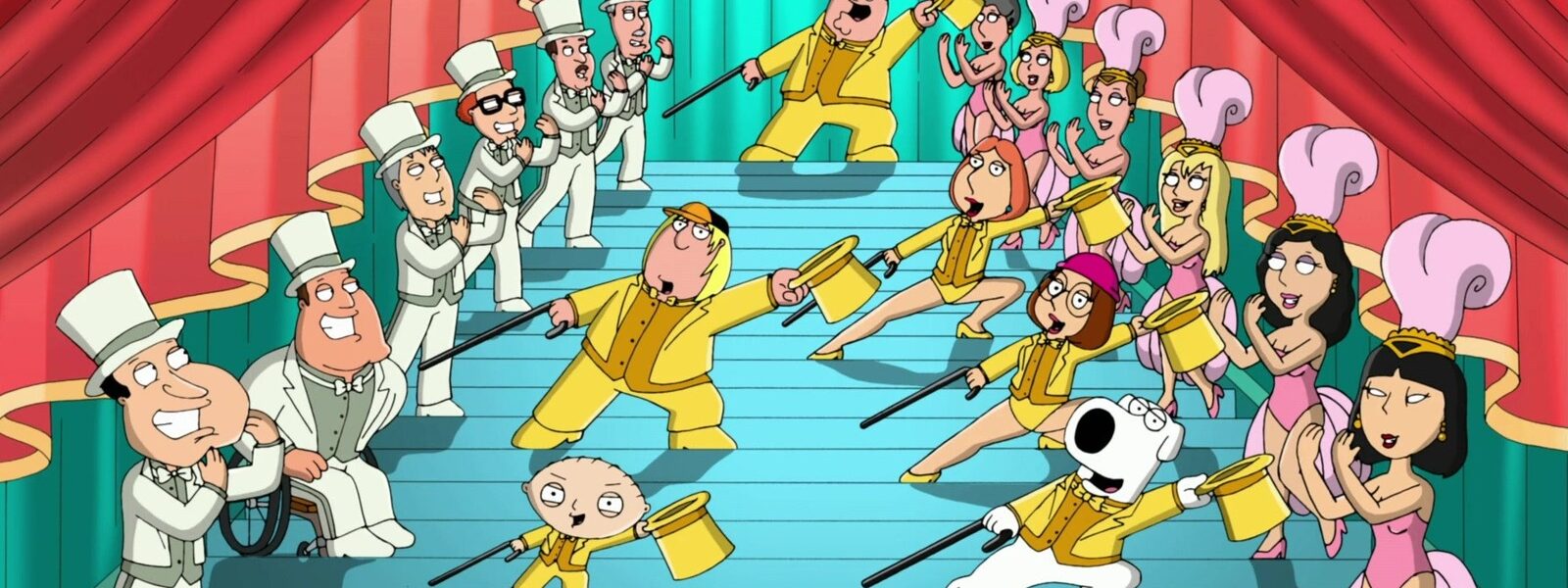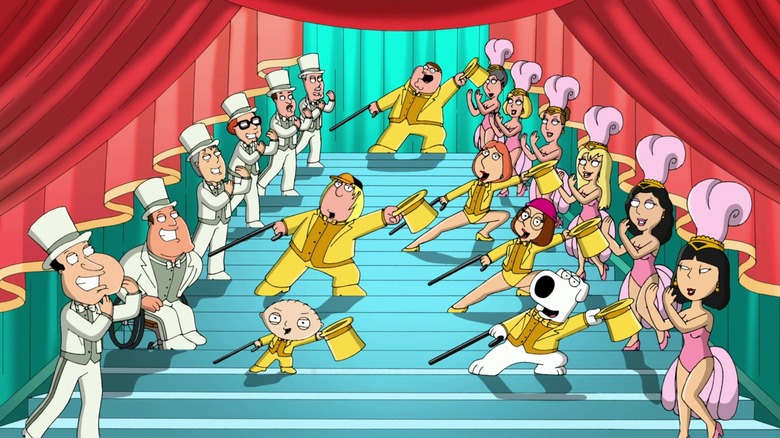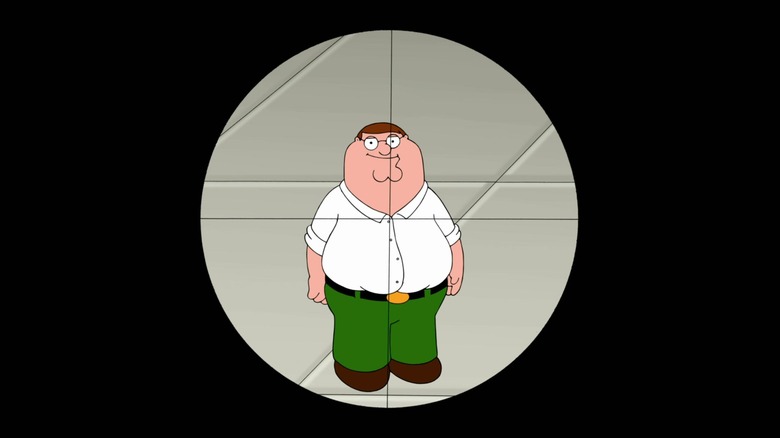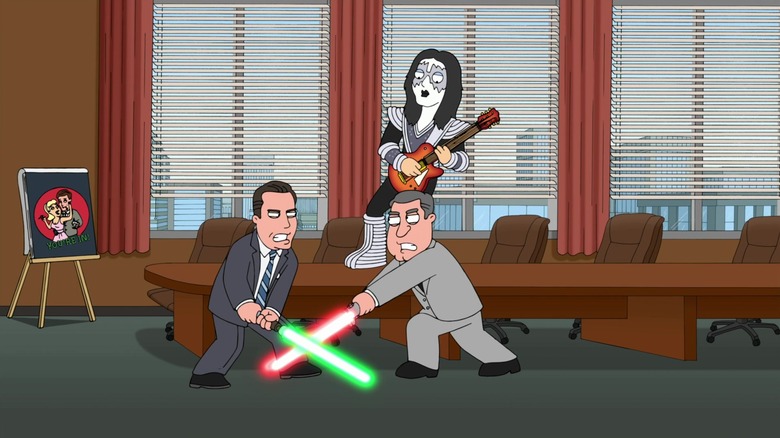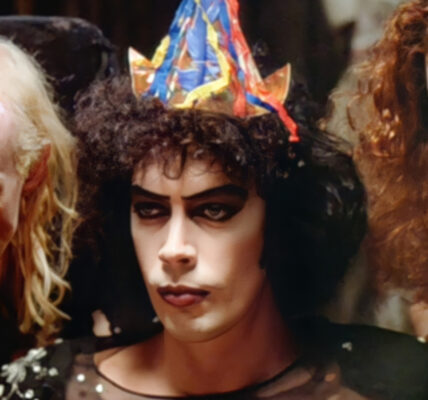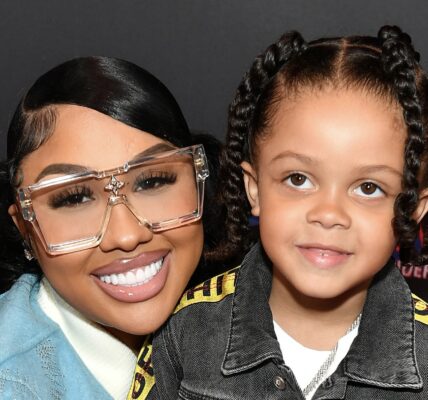Seth MacFarlane’s animated sitcom “Family Guy” has long traded in shock humor and crude jokes. Like a fratboy version of “The Simpsons,” “Family Guy” came about when many comedians and television shows were testing the boundaries of what was deemed acceptable on television. Many of these comedians objected to Reagan’s manufactured and fabricated wholesomeness in the 1980s. MacFarlane was born in 1972, so he grew up witnessing the blandness of the “classic American sitcom.” There was also a general cultural tendency to chafe at the 1990s trend toward “politically correct language”, even from those who agreed with this sense of sensitivity.
MacFarlane’s “Family Guy” opened with a riff on the title sequence of “All in the Family,” then exploded into a glitzy song-and-dance routine about (ironically, of course) restoring “good values to life.” ‘old’. But the title was ironic. Peter Griffin (MacFarlane) was not a “family guy” at all, but a foul-mouthed, media-blind, alcoholic jerk with tendencies toward sexism and bigotry. Old-fashioned values, MacFarlane declared, were actually horrible and outdated.
Much of the shock humor of “Family Guy” is intended to be an incitement to sexist and bigoted attitudes so often seen in “good old TV shows”, revealing how many of the country’s core conservative values America are rotten. However, with many of the series’ jokes, the line is blurred. Sometimes MacFarlane makes a comment. Sometimes he’s rude just for the fun of it. There will be at least one joke per episode that will offend most people.
“Family Guy” walked this line for 426 episodes over 23 seasons. The show has been canceled and resurrected, and it shows no signs of ending anytime soon. In a 2022 interview with The Hollywood ReporterMacFarlane and producers Alec Sulkin and Rich Appel theorize how they got away with it for so long. MacFarlane posits that few people are truly offended by his show.
Seth MacFarlane believes no one is actually offended by Family Guy
MacFarlane found no evidence (at least anecdotally) that anyone was genuinely offended by any of his audacious jokes on “Family Guy.” He said he’d read some thoughtful essays and reflections on how someone might be offended by “Family Guy,” or how the show is a kind of cultural barometer of diminishing respect for our similar, but he never spoke with anyone who was openly upset (except for the occasional celebrities he made fun of).
He noted that there was some outrage from Twitter users (turned into the social media nightmare that is now X), but MacFarlane was wise enough to recognize that Twitter users were not a sample representative of its audience. Social networks, he knew, are not reality. MacFarlane said:
“I don’t find much of the supposed outrage in the real world. I’ve read a lot about it on Twitter, which is, even if we give it credit, statistically very marginal. Most people don’t are not aware of Twitter But in terms of comedy, I don’t think I’ve ever spoken to a single person in the real world – outside of social media and thinkpieces – who is truly upset about the state of comedy before- guard. hear about the opposite laugh.
It’s also worth noting that “Family Guy,” being animated, has a lot more leeway to say and do rude things. When a live-action actor says something blatantly anti-Semitic in a comedy series, it’s hard to accept because a real person is on the tape saying it. With “Family Guy,” dark jokes are repeated by wide-eyed caricatures, talking dogs and other fantastical characters. The absurd visuals take away a lot of the edge.
Family Guy does well because the characters are animated
Producer Alec Sulkin notes that “Family Guy” also has to give a lot of credit to fellow producer Rich Appel, who has a keen eye for what can and can’t be done legally. It’s okay to satirize a public figure, but “Family Guy” sometimes approaches the limit of legal defamation. Appel himself then weighed in, noting that animated shows are able to push the boundaries with shock humor thanks to their medium. After all, “The Simpsons” and “South Park,” “Family Guy’s” big brothers, also get away with “offensive” material, so “Family Guy” just followed suit. Appel said:
“I think if you look at ‘South Park’ and ‘The Simpsons’ and our show, it’s no coincidence that they’re all animated. And I think that ‘outrage’ and people’s desire to s “To take offense at anything is a different world when it’s animated characters. For me, that’s proof that people don’t get offended as much.”
MacFarlane pointed out that you can’t tweet angrily at characters like Peter, Lois and Stewie Griffin because they are animated characters. They can’t even be pretended to live in the real world, and the audience must accept them in the abstract.
It’s easy to “get away with” being offensive when all the evidence points to people not being offended. There will always be a market for bold and offensive humor, and “Family Guy” has been ready to provide it for more than two decades. There are certainly legitimate criticisms of “Family Guy” — the creators of “South Park” openly satirized the series favors pop culture references over history – but the show’s inappropriate humor is, I think we can all agree, not one of its great weaknesses.
